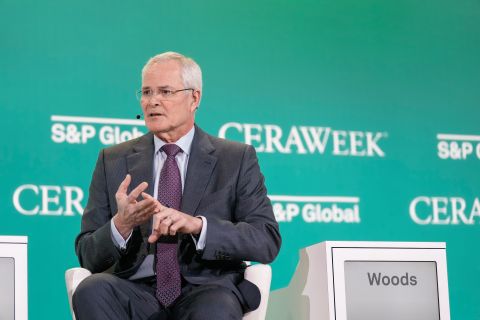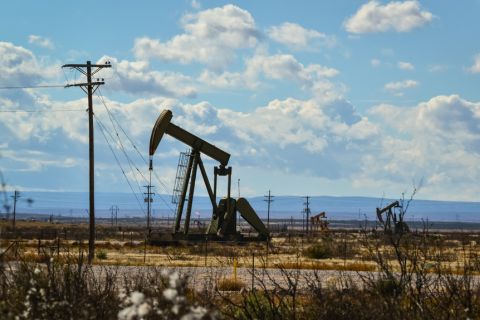Pemex has reduced its estimates of total oil and gas liquids reserves to conform to U.S. standards by 6.7 billion barrels, or 25%, and reduced dry gas reserves by 2.3 billion BOE, or 41%. These undeveloped reserves are mainly in the Chicontepec region in the northern part of the country. Although significant, the adjustments don't affect current production or long-term growth objectives. Total reserves of 23.6 billion BOE give Pemex a 15.6-year reserve life, second only to Venezuela in Latin America. The company plans to boost oil and gas output significantly by 2006 to 4 million barrels of oil per day-a 33% increase from current production-and gas output 50% to 7 billion cubic feet per day. Historically, Pemex had reported reserves using guidelines from the Society of Petroleum Engineers and the World Petroleum Congress, which in some cases are more liberal than those used by the U.S. Securities and Exchange Commission. "The undeveloped reserves that were revised were among the highest-cost in the Pemex portfolio (although likely to be competitive with many U.S. developments) and were unlikely to be developed for some time, given the company's budget restraints," said S&P. -Leslie Haines What role will energy trading and marketing play in the future, and which companies will survive to be a part of that future? At its core, energy trading is still a viable business that performs a valuable service to the industry, Carol Coale, an energy stock analyst with Prudential Securities, told Houston Producers Forum members at a recent gathering. However, their current focus-endorsed by the debt-rating agencies-deal mainly in short-term trades and is unsustainable. The investment community favors shorter-term deals because their mark-to-market profits convert to cash within a year or two. But they also generate much lower returns than longer-dated transactions, she noted. Rebecca Followill, an energy analyst with Howard Weil, noted that only three companies now are entering or expanding their trading and marketing function: Bank of America, Credit Lyonnais and UBS Warburg. However, the lattermost laid off about 130 traders recently from its Houston trading and marketing group. Energy merchant companies have taken heat for allegedly manipulating the California energy market and engaging in deceptive practices such as round-trip trades. Were they breaking the law, or simply taking advantage of a poorly structured market? Whatever the answer to that question, the fact remains that investors don't want to touch energy trading companies until their faith in the business is restored, Coale said.
Recommended Reading
Enverus: 1Q Upstream Deals Hit $51B, but Consolidation is Slowing
2024-04-23 - Oil and gas dealmaking continued at a high clip in the first quarter, especially in the Permian Basin. But a thinning list of potential takeout targets, and an invigorated Federal Trade Commission, are chilling the red-hot M&A market.
Mighty Midland Still Beckons Dealmakers
2024-04-05 - The Midland Basin is the center of U.S. oil drilling activity. But only those with the biggest balance sheets can afford to buy in the basin's core, following a historic consolidation trend.
CEO Darren Woods: What’s Driving Permian M&A for Exxon, Other E&Ps
2024-03-18 - Since acquiring XTO for $36 billion in 2010, Exxon Mobil has gotten better at drilling unconventional shale plays. But it needed Pioneer’s high-quality acreage to keep running in the Permian Basin, CEO Darren Woods said at CERAWeek by S&P Global.
Novo II Reloads, Aims for Delaware Deals After $1.5B Exit Last Year
2024-04-24 - After Novo I sold its Delaware Basin position for $1.5 billion last year, Novo Oil & Gas II is reloading with EnCap backing and aiming for more Delaware deals.
Mesa III Reloads in Haynesville with Mineral, Royalty Acquisition
2024-04-03 - After Mesa II sold its Haynesville Shale portfolio to Franco-Nevada for $125 million late last year, Mesa Royalties III is jumping back into Louisiana and East Texas, as well as the Permian Basin.





